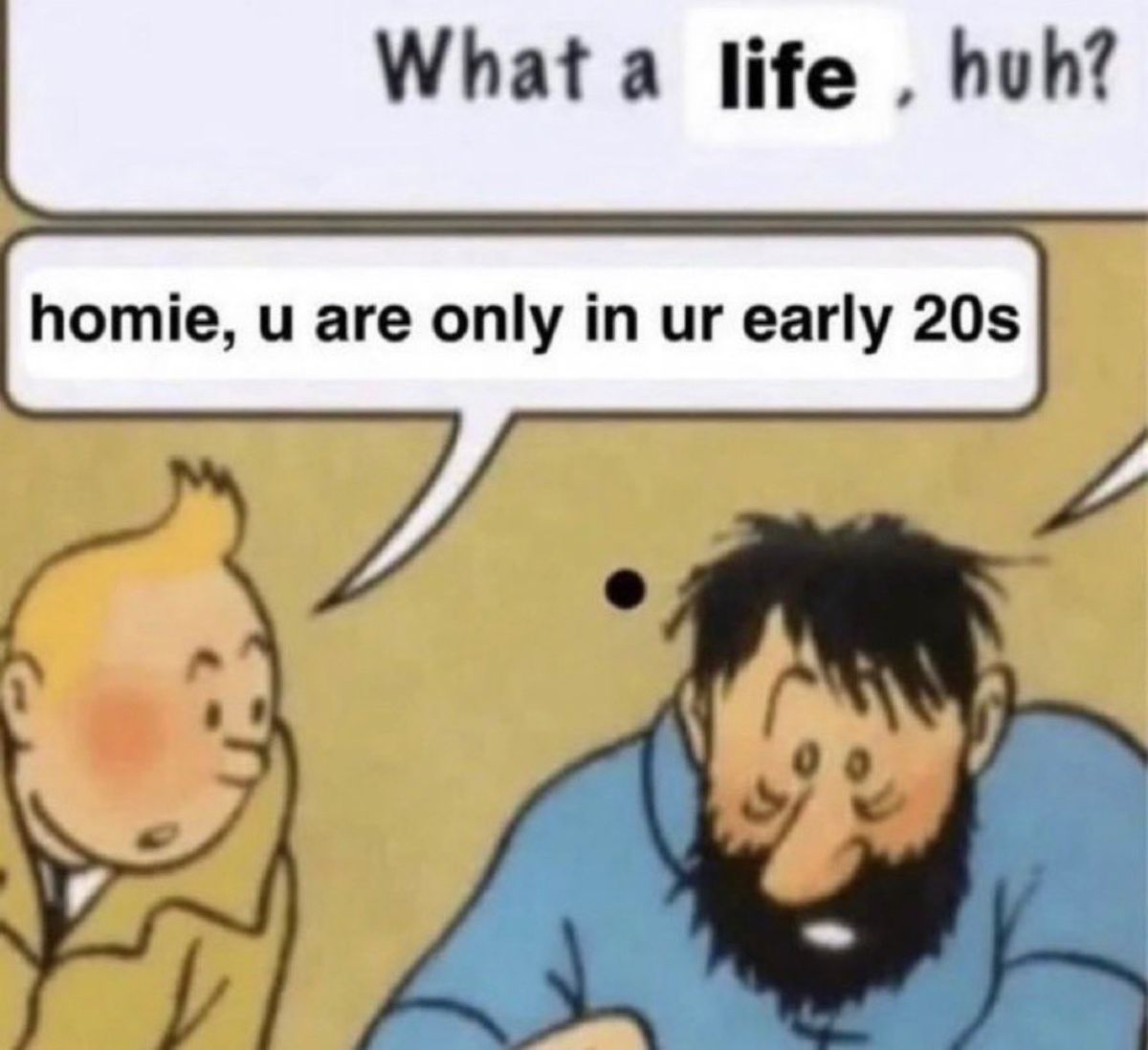The Greatest Stoic Alive

There is a source. A source that we all share and can all see. But, we cannot see it the same. This is what we call perspective. A viewpoint, a reality, a personality. We become what we see, but since we do not see the same things, we become different. We all try to understand the source, but it looks so different to everyone that we cannot even be certain we see the same thing. In actuality, we don’t see the same thing. Each person's eyes, nose, ears, mouth, and sense of touch are all uniquely tuned based on their DNA. It's crazy to think that the DNA that codes for the length of the tiny hairs in your ear could be the reason you became a rave slave. At a rave, with the help of a few necessary supplements, what may sound like noise and drilling to others can sound like harmony to you. You may feel like you're in another world, where life is great and the lights are dancing and colliding. However, someone standing next to you with different-length ear hairs could be hating their life, finding the lights piercing and too fast, and feeling uncomfortable and nauseous. It’s crazy how different people interpret the source, reality, differently. We can’t really experience the source as someone else, all we can do is listen, believe, and trust their perspective. But it is crazy that our society functions on deducing what is the source, what is “correct”. We see this in science, in law, in religion, in art, and in propaganda. Everyone is trying their best to communicate the source they perceive or would like to perceive. We either gain support for these visions or create conflict as they lead to disagreements and differences in the perception of the source. All conflicts arise from disagreements in this perception of the source, with each party trying to convince the other that their perception of the source is the correct one. Communication is the tool we use to convey this perception of the source.
Science is perception backed by evidence. Art is perception backed by the individual. Law is perception backed by authority. Religion is perception backed by faith. The past is perception backed by history. The future is perception backed by desire.
Thus the more we try to learn from the other, the more we try to learn other perspectives, the more of the truth we can know. This has lead me to read and study the philosophy of many different people. Recently I decided to pick up Meditations by Marcus Aurelius and study the philosophy of one of the greatest stoic’s alive. Marcus Aurelius (121-180 AD) was a Roman emperor known for his philosophical work "Meditations." Despite the demands of his reign, he embraced Stoicism and authored personal reflections on ethics and tranquility. Aurelius' lasting legacy stems from his ability to harmonize philosophy with his imperial responsibilities, establishing him as a revered philosopher-emperor.
We Perceive what We Believe
Quotes from Meditations by Marcus Aurelius
"That things have no hold on the soul. They stand there unmoving, outside it. Disturbance comes only from within—from our own perceptions."
When your body processes new information, it first filters it through your existing beliefs, identities, and settings. This is because your brain wants to be efficient and will only pick up information that aligns with your value system. For example, you may skim through hundreds of pages of material without retaining anything until you find what you are looking for, because your brain only perceives information that is deemed valuable by cross-checking it with your value system. This is how you are able to scan through aisles before finding black beans on aisle 7, or how you filter out a professor until they say "this will be on the exam" and you start paying attention again. The only reason you started to perceive the professor is because you value knowing what will be on the exam, because you value getting a good grade, because you value your gpa, because you value going into a grad school, because you value getting a good job, because you value living up to your cultural expectations, because you value becoming rich, because you value solving world hunger. Also it's because you believe yourself to be a good student, because you believe you will become a famous inventor, because you believe you can truly end world hunger. If you believe your significant other is cheating on you, you will perceive them smiling at their phone to be adding to your suspicion, when they could have actually been looking at a picture of you. You perceive what you believe.
"Our inward power, when it obeys nature, reacts to events by accommodating itself to what it faces—to what is possible."
Everything you believe to be possible becomes possible for you. Your actions are driven by the belief that something is possible. Consider tying your shoes; you only tried it because you believed it was possible. Your hands and fingers moved in a way that felt familiar, and before you knew it, your shoes were tied. Your subconscious mind took into account the context of what you were doing, your value system, and your desire for your shoes to be tied. This same principle applies to much larger-scale endeavors. Human beings believed it was possible to travel to the moon, and after years of effort, money, and resources, we achieved it. Your body and mind will accommodate what you believe is possible and where you want to go. Everything you do starts with the belief that it can be done.
"Forget everything else. Keep hold of this alone and remember it: Each of us lives only now, this brief instant. The rest has been lived already, or is impossible to see."
This quote is one of my favorites from the books. It serves as a reminder that you only have the present moment. The past is unchangeable and the future is impossible to predict, so the only thing you can truly control is the now. By living in the present, you can focus on what you can do right now to improve yourself and your life, rather than dwelling on things that are out of your control.
You can start doing the activities you've always wanted to do in the future today, in the present. Whether it's baking, gardening, or taking a walk with weights on your shoulders in the park, you never know when the future will end, so it's best to start doing what you want to do now. Start small. By doing so, you can make the most of the time you have and live your life to the fullest.
However, you must also remember that while you should live in the present moment, you need to think about the future as well. The choices you make today will impact your future self. Therefore, you should focus on working towards your goals and finding ways to better yourself, while still being present in the moment. By balancing your present and future selves, you can live a fulfilling life that aligns with your values and beliefs. You can work towards a better future, but you must do so in the present moment. Remember everything will change, and in the end nothing matters so no pressure, and just enjoy your life.
"The knowledge that there is nothing nature loves more than to alter what exists and make new things like it."
Thanks for reading, let’s grow together :)
